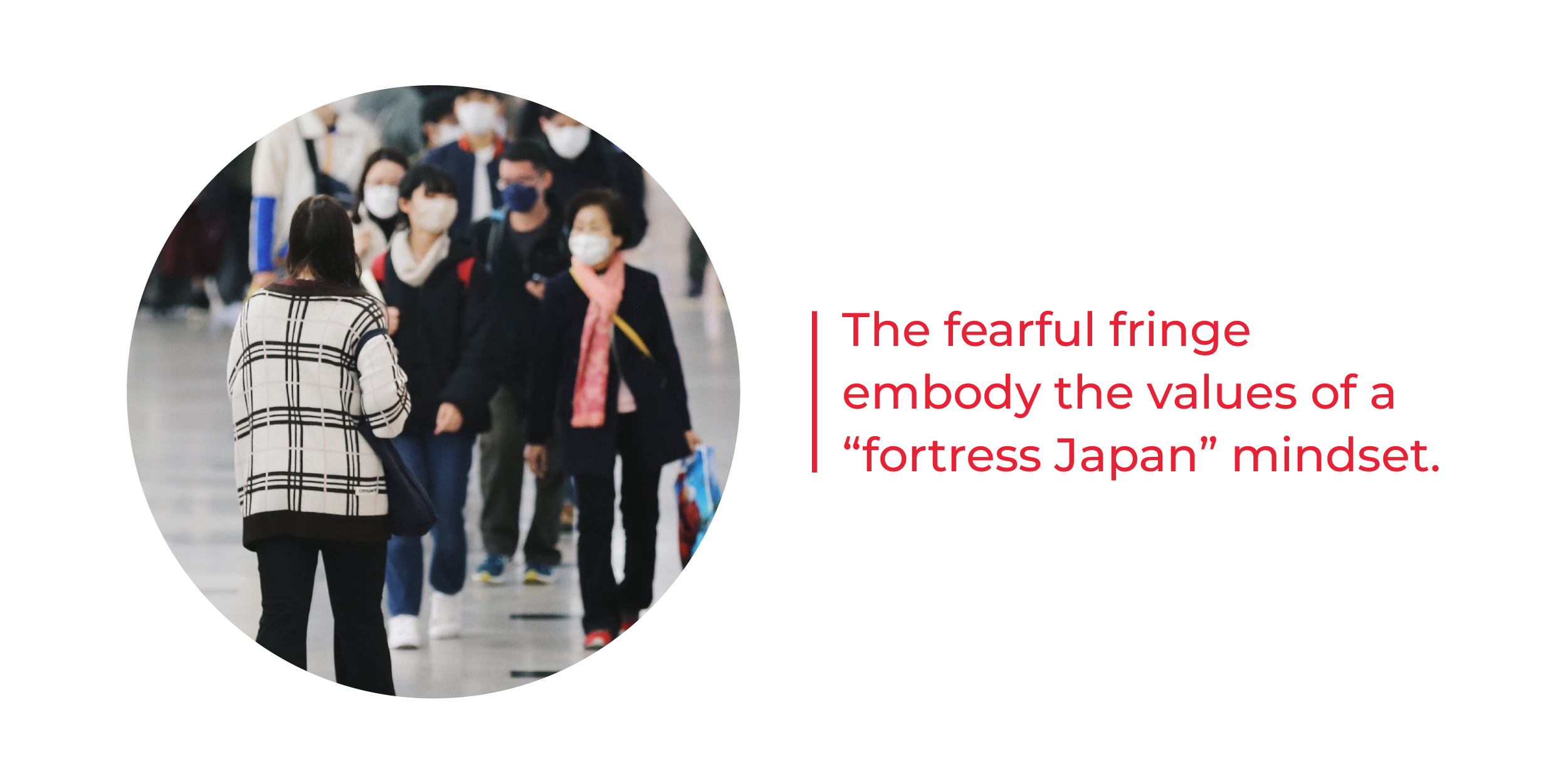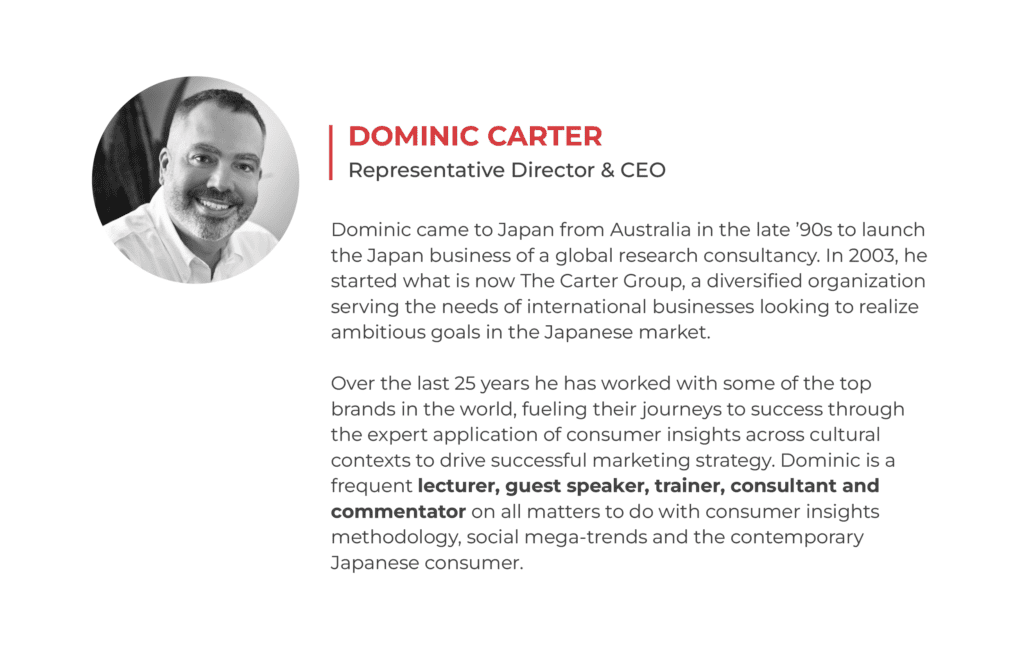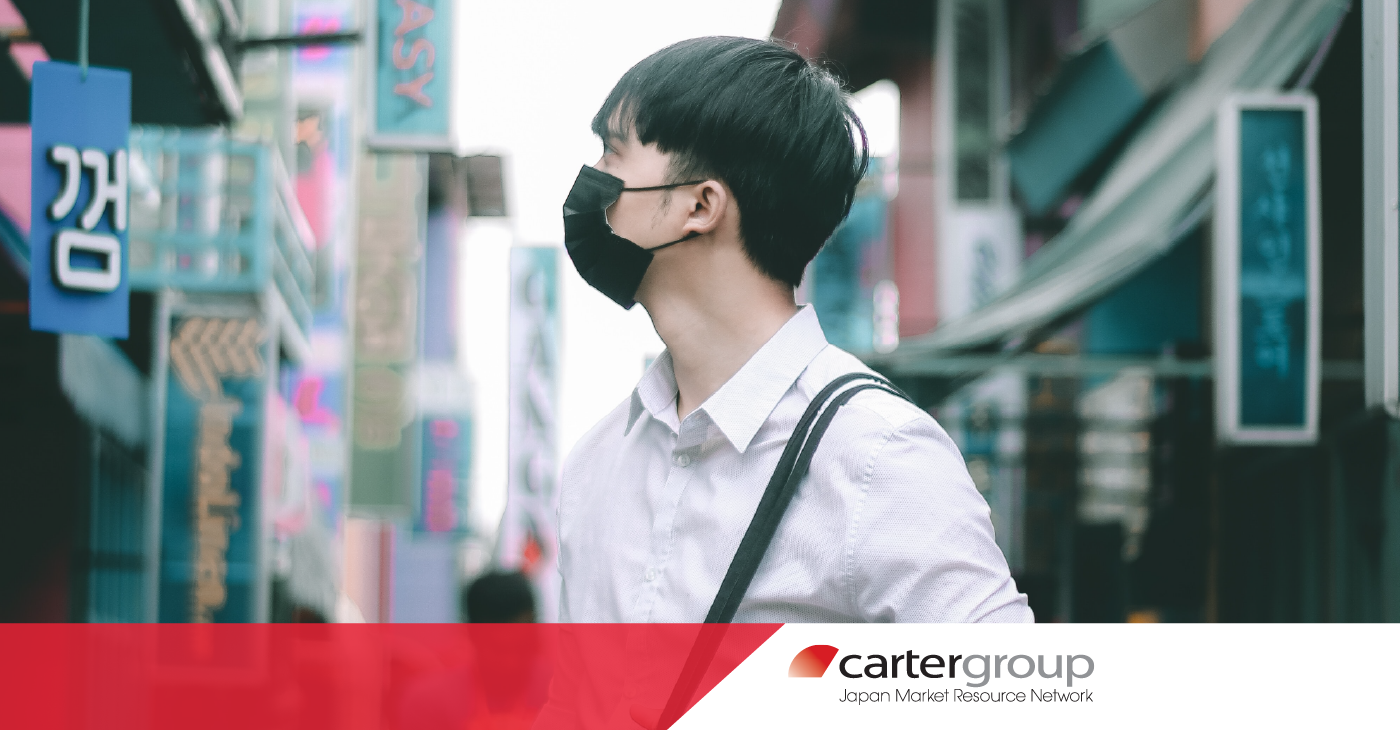Living in ‘fortress Japan’
Every country has them, and Japan is no different. I’m talking about “the fearful fringe.” These are the people who fundamentally lack trust in their security, either personally or for the country at large. They view their nation as being threatened by outside forces, but they lack confidence that their democratic government is strong enough to do anything about it.
At The Carter Group, we’ve tracked consumer sentiment in Japan market every year since 2017. Beginning in 2021, we added over 60 questions covering everyday people’s values on issues such as personal confidence and security, the nation’s position in the world, how people feel about institutions and powers that be, the roles of science and tradition, as well as the world of work and emergent social and environmental issues.
We apply a statistical method called cluster analysis to pull people who indicate similar values into separate groupings. Within these groups, members are more similar in their worldview to each other than they are to members of other groups.
Our consumer insights found a distinct group that comprises around 10% of our population-representative sample aged 15-69. Let’s call this segment the Fearful Insecure. Its customer demographics are marked by strong insecurity, believing there is (so) much that can go wrong in life.
Operating from this insecure context, they display a profound lack of trust in established systems and experts. They very much embody the values of a ‘fortress Japan’ mindset. Tellingly, nine in ten of them feel that Japan is in danger of being exploited by outside forces. And, given the above, in a stark finding that should surprise nobody, the rate of Fearful Insecure people who are happy to see more foreigners living permanently in Japan is only 1 in 100.

Peering outward at a dangerous world
Their essential view of the world is that it is a dangerous place. Presumably, because they continually fear the worst, they believe there is a natural limit on how much you can and should trust other people. They are careful about what they eat – possibly not only from a health perspective but also from the point of view of food safety. They are strong proponents of “buying Japanese.”
Despite perceiving myriad problems, they are not looking so much to technology and innovation to help solve those. Nor do they view people currently in positions of power positively. Reading between the lines, the institutions and the people that run them have disappointed. They certainly perceive an inability on the part of politicians to do their jobs effectively. Moreover, they perceive a lack of morals in today’s society. LGBTQ rights are way down the list of issues they support.
An interesting feature of the Fearful Insecure is their demography, which is really rather average. As a group, their age and household income are close to average, and they are pretty evenly split in terms of gender. In other words, there are not many key markers in terms of gender or socioeconomic position that help us further distinguish them.
Unlike in other countries where insecure mindsets can be strongly associated with lower socioeconomic status, this does not appear to be the case in Japan. Nothing other than mindset is at play here. While they may not be objectively disadvantaged on average, they are the least confident of the segments we found as regards their economic prospects
Concerned citizens with the power to influence
The Fearful Insecure provides an interesting contrast to the Green Progressives. Both of these groups are highly concerned about the current status of Japanese society and its trajectory. At the same time, they could not be more different in terms of the solutions we presume that they would prescribe and hope that their governments will enact. It would be plausible to see these segments as forming the right and left wings of society, including more extreme elements. However, even though loud people can be disproportionately influential, it’s essential to remember that most Japanese, included in the Fearful Insecure segment, are moderate people in their political expressions and actions. This also goes for the more opinionated among them.
Empathy and humility
It is important to understand the Fearful Insecure mindset because it is far from uncommon for isolated – yet strong, unexpected, and possibly irrational reactions to occur when introducing new products, ideas and concepts. This can also be the case when commenting on aspects of Japanese social characteristics, as an outsider. Perhaps some of these reactions come from Fearful Insecure segment members.
Approaching issues and your own objectives with humility, in my experience, is always the best approach as an outsider for engaging with even those that may be happier for you not to. This is not a call to back off, but a call for sensitivity.
To learn more about how the values of the Japanese consumer drive their behavior, download our comprehensive Japan Values Segmentation guide!


